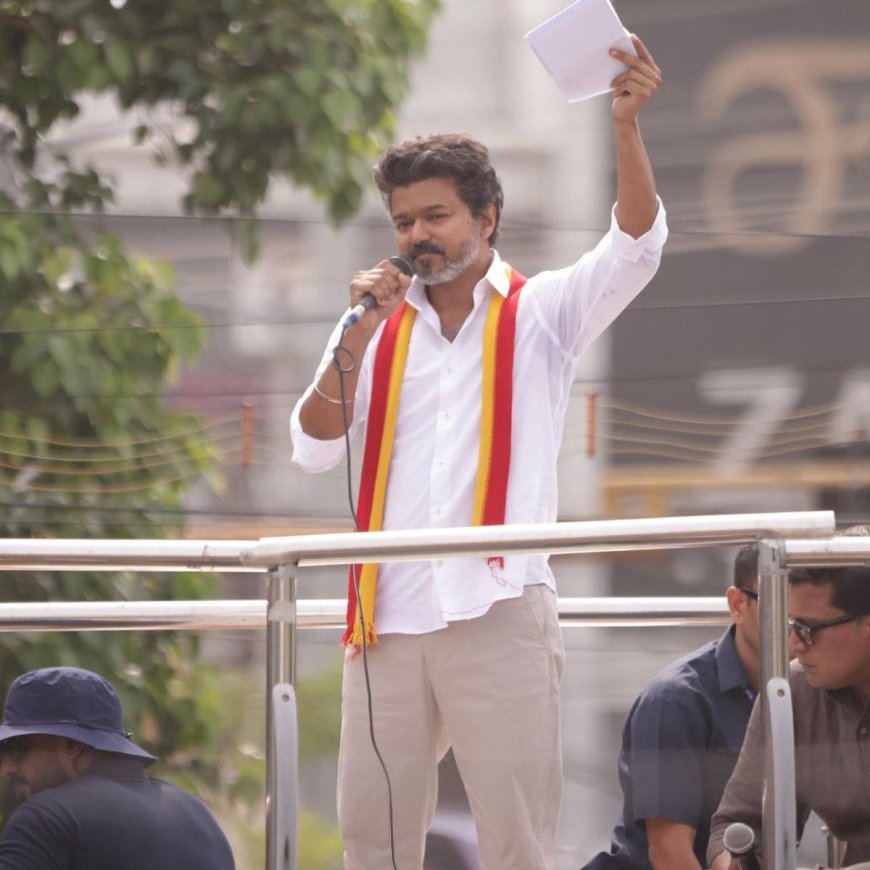Stampede at Joseph Vijay's Karur Rally Claims 40 Lives, Including 10 Children
A tragic stampede at Joseph Vijay’s Karur rally leaves 40 dead, including 10 children, raising concerns over safety, crowd control, and accountability.

Introduction
A tragic incident unfolded at a political rally led by actor-turned-politician Joseph Vijay in Karur, Tamil Nadu, where a massive stampede claimed the lives of 40 people, including 10 children. The event, which was intended as a public gathering to connect with supporters, turned disastrous due to overcrowding and inadequate crowd management. This shocking episode has raised serious questions about safety protocols in political events and the responsibility of organizers in ensuring public welfare.
History of Political Rallies and Crowd Safety Issues
Political rallies in India have historically attracted large crowds, often becoming sites of chaos due to mismanagement, inadequate facilities, or panic situations. Over the years, stampedes have occurred at religious festivals, sporting events, and public rallies, pointing toward a recurring challenge in handling large gatherings. The Karur tragedy adds to this unfortunate list, highlighting the urgent need for better planning and emergency measures.
What Happened at the Karur Rally?
The rally witnessed a turnout much larger than expected. As Joseph Vijay was scheduled to address his supporters, an uncontrolled surge in the crowd led to panic and pushing. Narrow entry and exit points, coupled with lack of proper barricades, worsened the situation. In the resulting chaos, many were trampled, leading to the loss of 40 lives, with 10 being young children.
Reasons Behind the Stampede
-
Overcrowding: The number of attendees far exceeded the venue capacity.
-
Poor Crowd Management: Lack of proper security and barricades.
-
Emergency Response Delay: Medical help was not immediately available.
-
Panic Trigger: A sudden surge of people rushing to get closer to the stage created uncontrollable chaos.
Present Situation and Reactions
Authorities have launched an investigation to identify lapses in planning and security arrangements. Joseph Vijay has expressed deep grief and offered condolences to the families of the victims. Relief camps have been set up for the injured, while the state government has announced compensation for the deceased families. Donations and financial assistance, particularly for the families of the 10 children, are being coordinated.
Key Points
-
40 lives lost, including 10 children.
-
Tragedy occurred due to crowd mismanagement and overcapacity.
-
Ongoing investigation into security failures.
-
Political and public outrage demanding accountability.
-
Immediate relief announced by the state and Vijay’s team.
Drawbacks and Lessons Learned
-
Lack of preparedness for large gatherings.
-
Inadequate medical and security presence.
-
Insufficient planning of entry/exit routes.
Significance and Implications
The tragedy underscores the critical importance of safety at mass gatherings. It also serves as a reminder to political parties and event organizers that enthusiasm should never come at the cost of lives. This incident may reshape future rally protocols with stricter safety guidelines.
Advantages and Disadvantages (Perspective)
-
Advantages: Raised awareness about urgent need for stricter safety norms, possibility of better crowd control laws in the future.
-
Disadvantages: Irreversible human loss, tarnished image of the event, emotional trauma for families, and political backlash.
Positive and Negative Factors
-
Positive: Quick government response, financial aid, public awareness.
-
Negative: Loss of young lives, lack of accountability in advance planning.
Final Thoughts and Conclusion
The stampede at Joseph Vijay’s Karur rally is a heart-wrenching reminder of how negligence and poor crowd management can lead to devastating consequences. While political rallies symbolize democratic participation and people’s enthusiasm, ensuring public safety must remain the foremost priority. Authorities, event planners, and political leaders must work collectively to implement stricter safety protocols, so such tragedies are never repeated.

 Ellofacts
Ellofacts 





